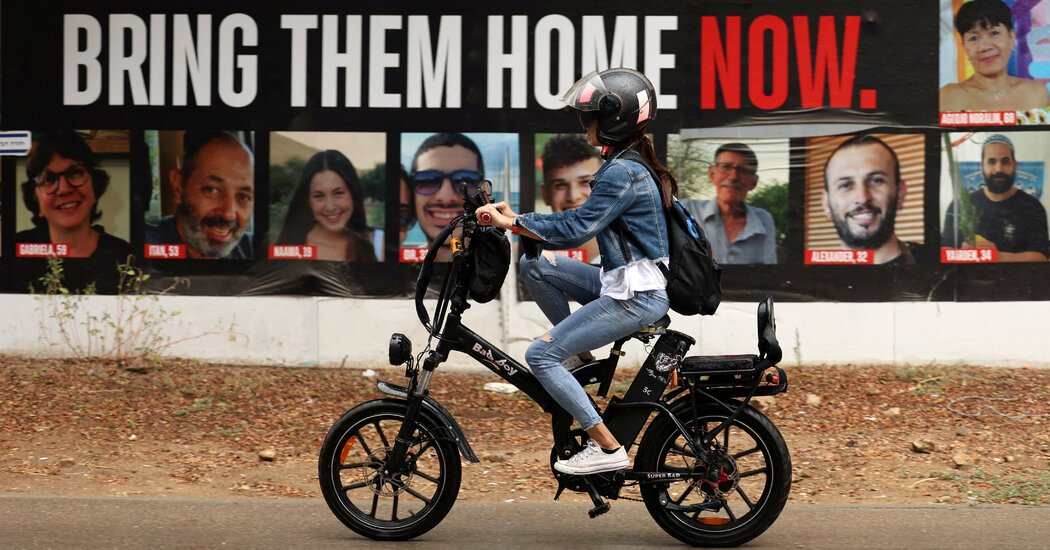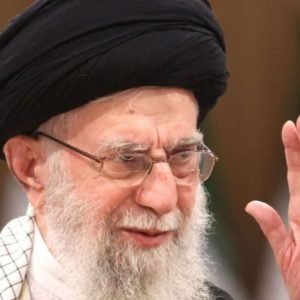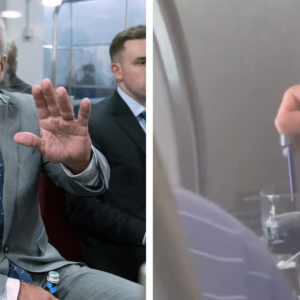
Health workers on Sunday began a polio vaccination drive in Gaza aimed at preventing an outbreak of the quick-spreading disease — a daunting challenge in a besieged enclave shattered by 10 months of war and dependent on commitments by the war’s combatants, Israel and Hamas, to abide by pledged “humanitarian pauses.”
Israel, facing international pressure to prevent a wider outbreak of the crippling disease, moved with relative speed to allow agencies of the United Nations, supported by local health officials, to tackle the crisis in Gaza, where it launched a war in response to a Hamas-led attack on Oct. 7.
Although the vaccination drive officially began early Sunday, Gazan health authorities gave some doses to children on Saturday at the Nasser Hospital in the southern city of Khan Younis, according to reports in Palestinian news media. Videos showed doctors and health workers squeezing droplets of the poliovirus vaccine into the mouths of children who were being treated at the hospital.
“I knew about this campaign by chance. I was frightened when I heard the word polio,” said Maysaa Abu Daqqa, a mother of a 9-year-old, Habib Nizam. Ms. Abu Daqaa was waiting in a patients’ room at Nasser hospital. “When I saw other women accepting the vaccinations for their children, I was encouraged to follow them,” she said.
Both Hamas and Israel have agreed to the pauses in the fighting to allow the vaccinations to take place, but the campaign will be tricky to execute. With much of Gaza’s infrastructure destroyed, and some 90 percent of the enclave’s roughly two million residents having repeatedly fled Israeli bombardment, it may be impossible to ensure the immunization of all of the enclave’s estimated 640,000 children under age 10.
For families seeking to get their children vaccinated, the challenges are layered and fraught: Not only must they trust that the cessations in fighting will hold, but many will have to find transportation, navigate blocked and broken roads and expose themselves to danger and widespread lawlessness to reach the vaccination sites.
The 2,100 people trained to conduct the vaccination drive will face risks, too, including anxieties over a history of deadly assaults on aid workers since the war began.
At a news briefing at Nasser Hospital on Saturday, Dr. Bassam Abu Hamad, a member of the polio campaign committee in Gaza, tried to encourage families to get their children vaccinated.
Acknowledging potential concerns some parents might have, he said that the vaccine “is safe and rarely has any side effects,” and urged mothers to “convince each other” to vaccinate their children. “The amazing thing here is the perseverance and determination by the locals to get the vaccines, despite the horrific and harsh situation we are all going through,” Dr. Abu Hamad said.
Poliovirus, which is highly contagious, can cause paralysis and death in the unvaccinated. Largely eradicated around the world by decades of public health campaigns, it can thrive in unsanitary conditions and in places where vaccination rates are not high enough. Such rates in Gaza, which health officials have said were at about 99 percent as recently as 2022, have dropped significantly among babies because of the war.
The vaccine drive will be conducted through staggered pauses of fighting in different regions of the Gaza Strip designed to allow aid workers to try to vaccinate children at roughly 700 medical facilities, mobile clinics and shelters.
Israel will “allow a humanitarian corridor” for vaccination personnel to travel and will establish “designated safe areas” for them to administer vaccines during certain hours, the office of Prime Minister Benjamin Netanyahu said in a statement on Saturday.
“Israel views with importance the prevention of a polio outbreak in the Gaza Strip, including for the purpose of preventing the spread of diseases in the region,” it said.
The campaign is expected to last for three days, with each humanitarian pause in place from early morning until midafternoon. There will be an option to extend the vaccine drive if necessary, and then local health officials will shift their focus to southern Gaza. The northern region of the enclave will be treated last, according to the staggered schedule announced by global health officials on Thursday.
Gazans received a text message from the health ministry on Saturday, announcing the beginning of the vaccination drive for children under 10 years old across different parts of the strip starting on Sept. 1.
The vaccination campaign kicked off in central Gaza, where the health ministry said clinics, hospitals and U.N. schools would be offering the vaccine during the hours of the humanitarian pause.
The W.H.O. and UNICEF, the U.N. children’s fund, have rushed more than 1.2 million doses of oral polio vaccines to the region, and say that another 400,000 doses are on their way.
Dr. Majdi Dheir, the head of the campaign against polio in Gaza, said more than 2,700 people had been trained by experts from the health ministry, the World Health Organization and UNICEF to carry out the vaccinations.
Once the first round of vaccinations is complete, a second, booster round of immunizations will need to be administered four weeks later. Israel has agreed to repeat the staggered humanitarian pauses for the boosters as well.
The scale, ambition and logistics of the vaccination campaign are unprecedented in the Gaza war. The fact that the plan for it came together in only six weeks of negotiations after the virus was first detected is a sign of just how serious public health officials believe an outbreak could be.
Because polio can strike and spread rapidly, it is not only a risk to Gazans, but also could spread to neighboring Egypt or Israel, and potentially beyond. Whether the disease can now be contained is impossible to determine, health experts have said.
Israel has begun to offer booster vaccines for soldiers operating in Gaza. But a public health expert, writing in Foreign Policy, warned that effort may not be enough to stop the spread of an outbreak to Israel, citing vaccine opposition among Israel’s ultra-Orthodox, who make up some 17 percent of the population.
Polio is transmitted by contact with the feces of an infected person, or consumption of water or food contaminated by fecal matter.
Aid and rights groups say Israeli strikes have badly damaged access to sanitation and clean water in Gaza, not only risking the spread of preventable diseases but also possibly constituting a war crime. In June, the aid organization Oxfam released a report accusing Israel of destroying more than two-thirds of the enclave’s sewage pumps and all of its wastewater treatment plants.
After the virus was detected in sewage samples from Gaza in July, the W.H.O. director general, Tedros Adhanom Ghebreyesus, warned that the conditions created “the perfect environment for diseases like polio to spread.”
Such warnings became more urgent when, two weeks ago, Gaza confirmed its first case of polio in 25 years, in a nearly 1-year-old boy.
Facing repeated displacement, tens of thousands of Gazans have crammed themselves into camps with little access to water and sanitation. As a result, some 340,000 tons of solid waste have accumulated in or around populated areas, according to a U.N. assessment.
Among some Palestinians on social media, there was cynicism over the vaccine drive, asking what the point was in saving Gazan children from the disease as long as fighting raged.
Mr. Ghebreyesus stressed that the most important objective was reaching a cease-fire, over which negotiations have repeatedly stalled.
“Humanitarian pauses are welcome,” he said in an online video statement. “But ultimately the only solution to safeguard the health of the children of Gaza is a cease-fire. The best medicine is peace.”







